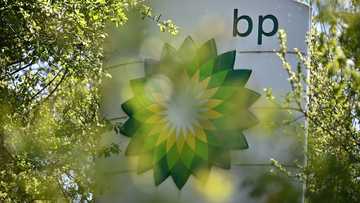Fuel Prices In Ghana Set To Reduce In August After Slower Cedi Depreciation
- The Institute for Energy Security has predicted a reduction in fuel prices in the first part of August because of the performance of the cedi
- It has predicted a 2-4 percent decrease in the prices for gasoline, gas oil, and liquefied petroleum gas, subject to market fluctuations
- The Institute for Energy Security has attributed the expected downward trend in Ghana's fuel costs to positive market dynamics globally
The Institute for Energy Security has predicted a drop in fuel prices in August 2024.
The drop is expected to be driven by favourable international market conditions.

Source: Facebook
Citi News reported that the institute is predicting a 2-4 percent decrease in gasoline, gas oil, and liquefied petroleum gas (LPG) prices. These predictions are subject to market fluctuations.
IES Research Analyst, Adam Yakubu, said there were positives in the foreign fuel market and the slowed depreciation of the Ghana Cedi, which informed the prediction.
Gasoline, gas oil, and liquefied petroleum gas recorded favourable prices in the second July 2024 pricing window.
The price of gasoline fell by 2.99 percent, oil by 4.59 percent, and LPG by 1.10 percent in the second half of July 2024.
The Ghana Cedi also recorded slowed depreciation at 0.52 percent, the lowest since February 2024.
Past trends of fuel prices
Fuel prices rose in July, as predicted by industry observers like the Chamber for Petroleum Consumers, who urged the government to reduce taxes on LPG or to subsidise the price of LPG.
Before June, fuel prices had dropped on the international market, but the Institute for Energy Security noted that the worsening cedi prevented Ghanaians from benefiting.
The Institute of Economic Affairs recently proposed that Ghana adopt the dollar to stabilise the economy as the cedi loses its purchasing power.
Dr Stephen Amoah defends struggles with cedi depreciation
YEN.com.gh reported that the Deputy Finance Minister had lamented the challenges fueling the cedi depreciation.
Speaking to the media previously, Dr Stephen Amoah described it as a 'ritual problem' needing a holistic solution.
The deputy minister cited the persistent demand for foreign currency due to high import levels as a problem.
Proofread by Bruce Douglas, senior copy editor at YEN.com.gh
PAY ATTENTION: Stay informed and follow us on Google News!
Source: YEN.com.gh



